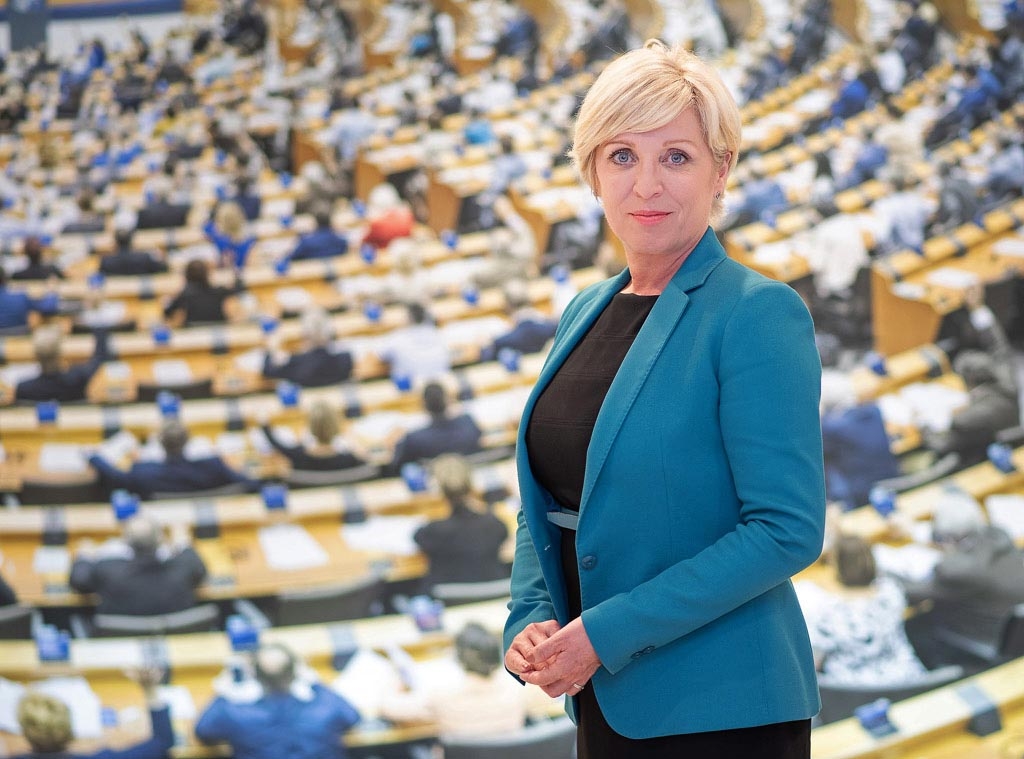By: Romana Tomc
The European Commission has raised high expectations with the announcement of monitoring the rule of law in member states. The 2023 report is already the fourth in a row. While we could tolerate shortcomings in the first report, we now find that not only do the shortcomings persist, but the reports themselves have no added value.
This document has a distinct political tone, aimed at attacking political opponents rather than assessing the actual state of the rule of law. As a result of this report, the rule of law will not improve even slightly in Slovenia or anywhere else.
The Commission skilfully avoids making evaluations unless it serves its own interests. It subtly imposes its ideas on the organisation of the judiciary, for example, by citing irrelevant statistical data, such as the fact that a working group had one meeting. Is it essential how many hours they spent together or is it essential what they discussed and concluded? There is also much discussion about the police, but you will search in vain for information about the resignation of the Minister of the Interior due to political pressure on the police. The report also fails to mention what happened at the Constitutional Court regarding the public broadcaster (RTV), but it does inform us that the Commission for the Prevention of Corruption has hired five new employees.
The Commission acknowledges that concerns about the independence of the judiciary still exist but adds that these concerns have been reduced by the alleged appointment of a new/old director of the National Bureau of Investigation, which supposedly restores its independence. We can only wonder whether this is a complete lack of understanding of the situation or a deliberate mockery by Brussels officials of the serious problems we face in Slovenia regarding the rule of law and the independence of so-called independent institutions.
Although the Commission uses the word “concerned” more times than in the previous year’s report, it still concludes that we are doing quite well and have diligently followed last year’s recommendations. While we are not yet perfect, if any shortcomings exist, we are in the final stages of developing new strategies and recommendations to address them. According to the Commission, the field of media has particularly improved. The only thing missing for perfection is to eliminate unacceptable concentration and opaque ownership. The fact that the accusation of unacceptable media concentration and opaque ownership has been present since the first report, yet nothing has been done about it, is conclusive evidence of the powerlessness of the Rule of Law report and its clear political motivation.
Regarding RTV Slovenia, the Commission could not be more transparent. It bases its findings mainly on the statements of the Peace Institute and the Network of Non-Governmental Organisations, which until recently was led by the new president of RTV’s programme council. The absurdity of the matter is evident as these organisations are quoted or used as a source over twenty times (20x!) in the report. Accordingly, the text reflects this as well. They do not forget to mention that the management of RTV Slovenia exerted unacceptable pressures on editorial policy and engaged in mobbing of employees last year, but from now on, everything will be different because RTV has been depoliticised. The Commission notes that with the new law, which stipulates that the management will no longer be directly appointed by the National Assembly, the possibility of political influence on RTV will be significantly reduced. It remains a mystery how indirect appointments can be more democratic than direct decision-making in the parliament, the bastion of democracy, in a parliamentary democracy.
Non-governmental organisations and civil society are generally enthusiastic about the improved environment for their activities, which is understandable given the substantial financial injections they receive through public tenders from the government. By the way, the Commission also mentions that a record number of laws were passed expediently last year. Although this is highly unusual and should raise questions as to why, this matter is not the subject of this report.
There are many statements in the report that could be criticised for having a political message. Unfortunately, there are even more such statements missing. Regardless of the Commission’s excuses regarding the prescribed methodology, what is missing in the Rule of Law report for 2023 is the comprehensive and realistic assessment of the functioning of the rule of law in Slovenia, which is considered endangered by many in the country. As long as European institutions, in this case, the Commission, continue to write reports like this year’s, the expectation that they will defend the treaties and the rule of law remains entirely illusory. Only when they begin to deal with the content in a professional, fair, and transparent manner, perhaps things will change.

